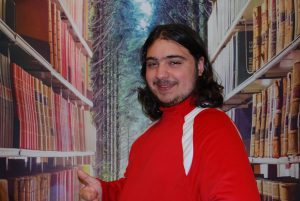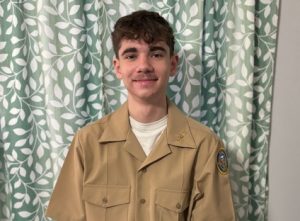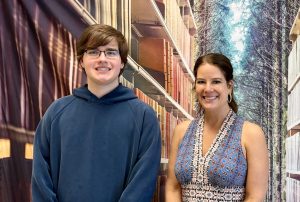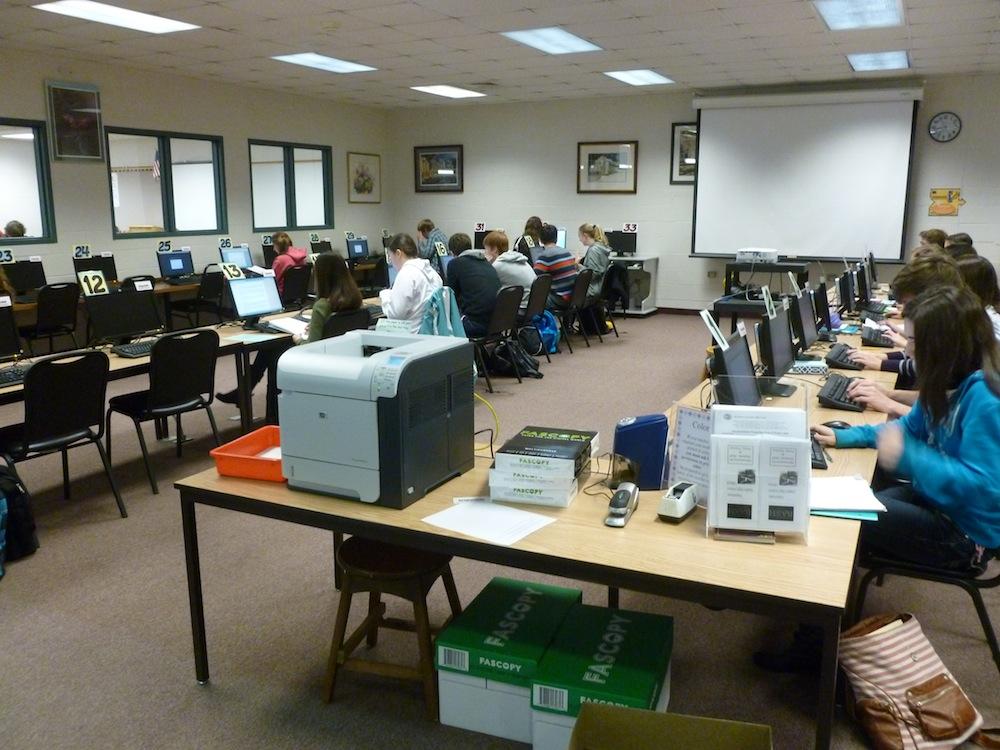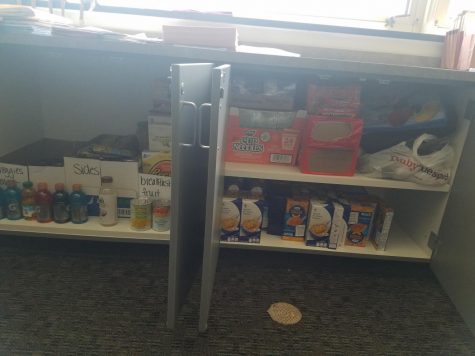Reaction to New Schedule Mixed
Students hard at work in Mr. Kusniez’s class.
The new hybrid block schedule is getting mixed results from students and staff.
The new block schedule – or more accurately Hybrid Schedule or Altered Schedule – began this fall. It consists of four days of 40-minute classes and two days of 80-minute classes in a six day cycle. Classes last year were 40 minutes each in a six-day cycle.
One of the main reasons for the switch is to provide all subjects with extended-time learning periods, says BASH Vice Principal Mr. Jim Towers. In the past, only science classes had double periods.
The switch also provides every student with a “flex” period, allowing students who have a skills deficiency in a certain area – such as English, math, or science – to get extra help. Other students have a free period during Flex time.
“Lots of students have full schedules, with no time for support,” Mr. Towers said. “This schedule allows every single student at least half an hour, every day, for support.”
The schedule also has changed staff planning time from late-start Wednesdays for students to one early-dismissal day per six-day cycle.
Vice Principal Mr. Wayne Foley said a lot of students like the longer class periods once a cycle. “Many students have told me that day five and day six are their favorite days.”
Student and faculty reaction to the new schedule seems mixed.
Senior Ryan Asher said he does appreciate the schedule change, because “the double days give me more time to learn stuff.” And Junior Jessica Morris said on the block days “it feels like things go more quickly.”
Senior Marlee Snyder says she likes the new schedule because it gives her more time in class to go through lessons without being interrupted by the bell. She also finds the long open campuses useful for getting work done. However, sophomore Madison Kucharek said she has a lot of open campuses, and “just sits there” with so much extra time.
Junior Helen McBlane says, “I think it’s pretty fun for classes in which teachers know what to do with the extra time.” But Junior Ty Miller thinks time is wasted during the longer periods. “A lot of my double periods are filled with fillers,” he said.
Mr. Josh Turner, head of the math department, said, “It is a tough adjustment, getting used to the double-length periods.” He said it is difficult to always come up with activities for the longer block periods.
However, he said he finds the flex period in the middle of the day to be convenient for getting students caught up on math skills, and he feels the same about the efficiency of having teacher collaboration time at the end of the day rather than in the morning.
Music department chair Mr. Dan Kershetsky dislikes that there are eight periods a day, as opposed to last year’s nine periods, since many overbooked students had to drop choir. However, he appreciates that students no longer have to share choir with lunch. Also, the double periods allow for full rehearsals in school while creating a “more relaxed and efficient experience” for the ensembles.
Mrs. Jean Battinieri, head of the science department, said, “The science department has stepped up to the challenge presented by the new schedule. The schedule is a change and as in most things when change occurs there are always adjustments to be made. We will continue to make those adjustments as needed.”
Mr. Towers said the challenge for science has been trying to cover the required curriculum with one less class period per cycle. (In the past, sciences class met for one period for five days, then for a two-period class on the sixth day. Now, they only have four one-period days and one two-day period). By simplifying the Scope and Sequence, science teachers have rearranged their curriculum in order to adjust to the new schedule, Mr. Towers said.
Rumors have been floating around that next year will be complete block scheduling; Mr. Towers said those rumors are completely false.





